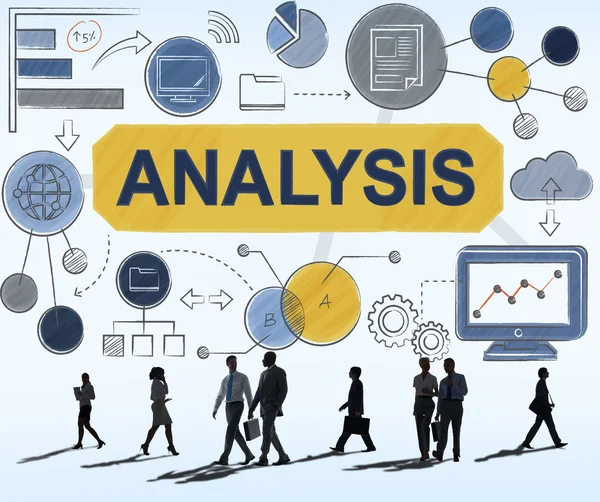The Finance Bill 2024 has sparked widespread debate and country wider protests such as #RejectFinanceBilll2024 and #totalshoutdownkenya, especially among Generation Z, also known as Zoomers.
Generation Z in Kenya has been relatively inactive in politics, and their sudden engagement is both unpredictable and unexpected. From a Gen Z perspective, the Finance Bill 2024 proposes significant changes to the tax landscape that could have major implications for their lives and the economy. Entering a world already burdened by debt, with limited job opportunities and an uncertain economic future, the Finance Bill feels like a temporary fix to deeper systemic issues as further illustrated.
As a member of Generation Z, I’m always on the lookout for changes that directly affect our future, especially when it comes to finances and legislation. The Kenya Finance Bill 2024 is one of those critical topics that could reshape our economic landscape. But why should we, the digital-savvy, forward-thinking generation, care about a finance bill? Buckle up, because this bill might just be the most important thing you read about today.
What are Gen Z issues with Finance Bill 2024?
Previously, citizens input has not been reflected on the final ascented public finance management laws in Kenya. Over time, these have raised many concerns including overtaxation, budgeted corruption, unemployment and over borrowing among others.
A Debt-Fueled Future?
The idea of unbalanced budget has led to over borrowing over the last decade. An indication of the dame trend feels inherently unsustainable. Kenya’s history of public debt raises concerns about the long-term economic stability. While the Finance Bill might offer some short-term relief, it adds to the national debt, a burden future generations will inherit. This debt restricts future spending on vital areas like education, infrastructure, and healthcare – the very things needed to build a better future.
Prioritize People, Not Corruption
Kenyan taxpayers have no problem with paying taxes on time, the call is for a shift in priorities. The government must invest in people welfare and tackle public money wastage and corruption. Implementing stricter measures to curb corruption, ensuring transparency in public spending, and holding officials accountable can free up significant resources. Increasing taxes on digital marketplaces, as proposed, would significantly increase the tax burden on Gen Z, who rely heavily on digital platforms for income and entrepreneurship. This tax hike could stifle innovation and entrepreneurship among young people already facing significant economic challenges.
Transparency and Accountability
If the Finance Bill as well as the Appropriation Bill does become a reality, transparency is crucial. It’s important to know exactly how the money is being spent, where the debt is accumulating, and who is benefiting. Gen Z demands accountability, having grown up in a digital age where information travels at lightning speed. They will track every penny and hold those in power responsible for ensuring the money is used effectively.
Investing in Our Future
This Finance Bill could be an opportunity, not just a burden. Imagine if the funds were used not for short-term fixes but for long-term investments in the future. Investing in education, making college and trade schools truly affordable, green infrastructure, and affordable housing could benefit not just Gen Z but generations to come. Another area of concern is the proposed increase in the limit of tax-deductible contributions to pension schemes and provident funds. While this might seem positive, it could also reduce disposable income for young people already struggling to make ends meet. Gen Z focuses on financial security and saving for the future, and this proposal might undermine their ability to achieve these goals.
Consequences of the Finance Bill 2024?
Among the many results the finance bill and the appropriation bill will cause, it is felt it will lead to more or less the following consequences.
Increased Cost of Living
The bill proposes a 16% VAT on financial services, which could lead to higher bank fees for mobile money transactions and savings accounts. Gen Z, who rely heavily on digital financial tools due to limited access to traditional banking, would see their everyday financial activities become more expensive.
Hindered Entrepreneurship
The bill also includes a 25% excise duty on crude palm oil, raising the price of cooking oil, a basic necessity. This could impact young entrepreneurs looking to start businesses in the food industry.
Limited Job Opportunities
A major concern is that the bill might stifle economic growth. Public opinion polls suggest a majority of Kenyans believe that slower economic growth would lead to fewer job opportunities, making it harder for young people to find work and build a secure financial future.
Public Money Wastage and Corruption
The bill’s potential to increase public spending without stringent measures to curb corruption raises concerns. Without accountability, there’s a risk of funds being misappropriated, exacerbating the financial burden on the population without delivering the intended benefits.
Financial Contagion
If Kenya’s finance bill creates economic instability within its borders, it can trigger a domino effect, impacting global financial markets and potentially leading to a financial crisis that ripples through developing nations.
Currency Fluctuations
A finance bill that impacts Kenya’s currency exchange rate can affect the value of neighboring countries’ currencies, making imports more expensive and exports less competitive.
Investor Confidence
Finance bills that create uncertainty or instability in Kenya’s economy can lead to investors pulling their money out of the country, impacting access to capital.
Gen Z Activism
The current Reject Finance Bill demos is an expression of a larger problem: a system that prioritizes short-term gains over long-term sustainability. Gen Z is tired of inheriting the consequences of these decisions. They want a voice in shaping their future. They want a government that invests in people and tackles corruption. They envision a future where a financed bill is planning for a better future
As suchm they have different and creative demonstrations that deman for among other things total rejection of the bill, forenscis debt audits and more accountabilty. Their activism has been defined with
- Digital Fluency: Gen are tech savvy with access to fast and affordable internet, making them adept at using social media and online platforms to organize, educate, and raise awareness about issues they care about. This allows for quick mobilization and global reach for their campaigns.
- Blended Approach: While social media is a big part of their activism, they also take action in the real world. They are participating in protests, volunteering their time and services as well as contact their parliament representatives to make their voices heard.
- Focus on Issues: Gen Z is passionate about issues like police brutality, rule of law, climate change, corruption, and human rights, and they’re not afraid to challenge the status quo.
In conclusion
Gen Z are a generation of innovators, activists, and entrepreneurs. They will hold leaders accountable, demand change, and work towards a future that is financially secure, environmentally sustainable, and equitable for all.
The Finance Bill may be a temporary fix, but temporary solutions are not enough. They are demanding a future that works for everyone.




I love love this ❤️